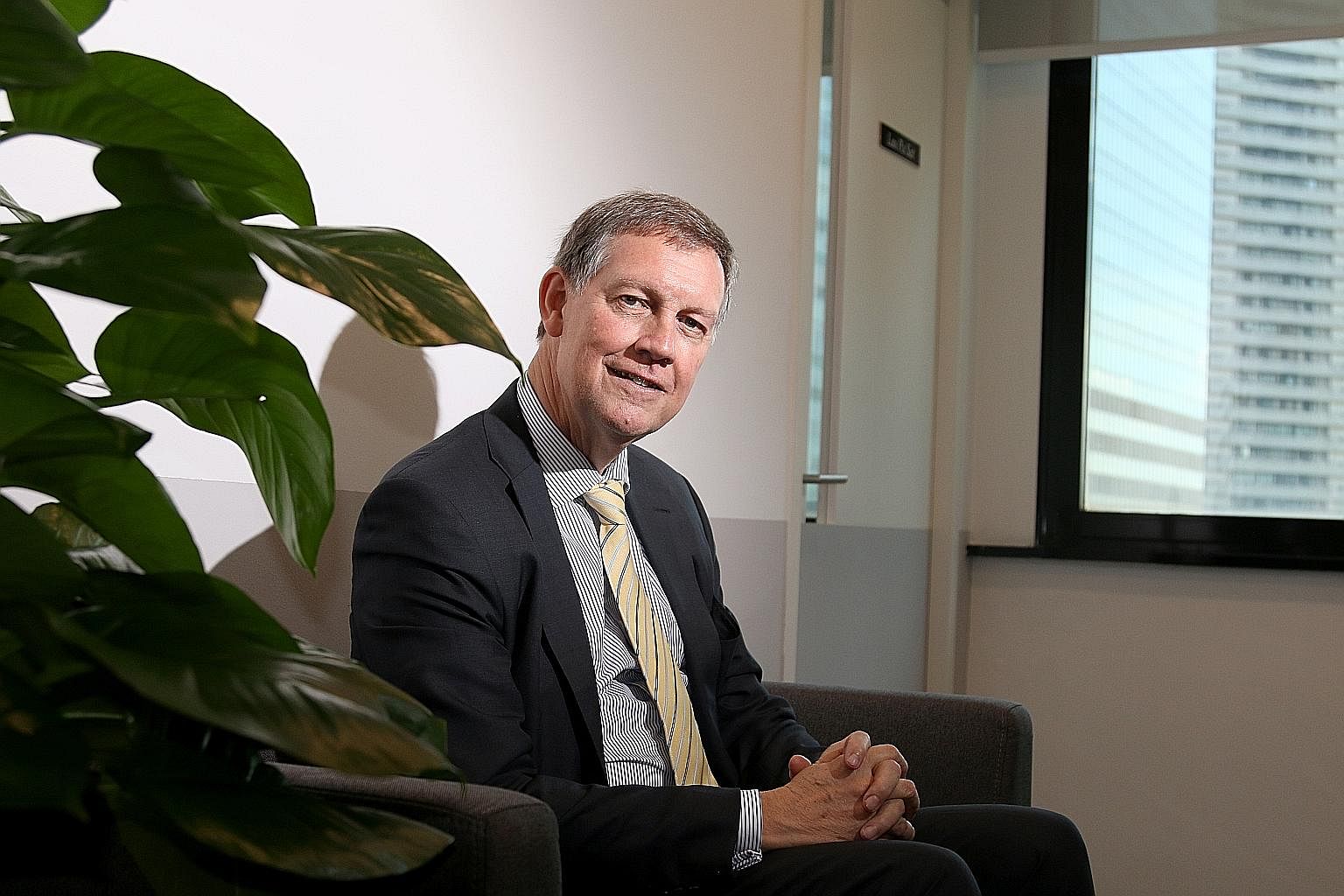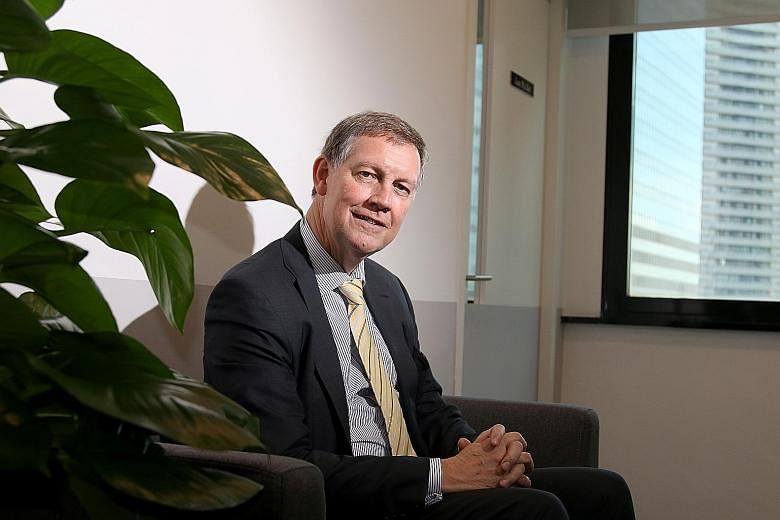Mention Russian oligarch and too frequently, the mental associations are with obscenely extravagant lifestyles, offshore accounts, trophy purchases of prestigious Western assets and cozy relationships with the Kremlin.
What if there is another perspective? That these are some of the smartest people on the planet, people with deep intellectual property in science who merely rode the opportunities thrown up by Mikhail Gorbachev's economic liberalisation of a Stalinist state?
Mr Tommy Helsby, chairman of investigations and disputes at Kroll, has that view. He should know. Several of them use Kroll, a premier investigation and risk management company, in their business.
"They absolutely are not as bad as they are made out to be," the London-based Mr Helsby told me recently during a stopover in Singapore on his way to Sydney.
"A lot of them came out of the top research institutes in Moscow. These guys have PhDs in chemical engineering and materials sciences. (The late) Boris Berezovsky was a computer scientist.
"A lot of the Red Princes are not oligarchs because of birth. Often, they are outsiders and Jewish."

Founded in 1972 by Mr Jules Kroll as a firm working to block corruption in the New York printing business - the first client was the parent company of Marvel Comics - J Kroll Associates would eventually become Kroll Inc, linked to investigations such as the ones that uncovered plunder by dictators like Ferdinand Marcos and Saddam Hussein, and stopping Turkish extortionists in Germany.
It is also involved in a variety of other activities, including for Wall Street clients and multilateral bodies such as the International Monetary Fund.
With more than 1,000 staff and offices in key spots around the world, it has a global footprint few others can match. Since the founder left the firm some years ago, Mr Helsby - who joined Kroll in 1981 when it was a single-office company in New York - is its longest-serving employee.
In a rare instance when it came in for unfavourable mention, it was revealed recently in the New York press that disgraced movie mogul Harvey Weinstein had used Kroll to dig up unflattering information about the journalists working on an article about him. Mr Weinstein's spokesman has countered by saying it is "fiction to suggest that any individuals were targeted or suppressed at any time".
What new directions is the investigations business taking? Having to cope with a widening thicket of regulations has become a corporate preoccupation in the past decade, says Mr Helsby, and Kroll is right in the middle of that advisory work.
For instance, you could find yourself falling foul of the long arm of United States regulators even if you were not aware that you had a US business.
Recently, Stockholm-based Telia Company AB, an international telecommunications company, and its Uzbek subsidiary Coscom LLC entered into a global foreign bribery resolution and agreed to pay a combined total penalty of more than US$965 million (S$1.3 billion), to resolve charges arising out of a scheme to pay US$331 million in bribes in Uzbekistan.
Telia fell under the scrutiny of the US Securities and Exchange Commission and the US Department of Justice because it had issued publicly traded securities in the US.
"Compliance has become an important issue as regulators get teeth," says Mr Helsby. "At the big global banks and multinationals, they are aware of it at the HQ level.
-
Fast facts
-
THE INVESTIGATIONS CHAIRMAN
Mr Tommy Helsby is chairman of investigations and disputes at Kroll Inc. He is 64 years old.
He joined the firm in 1981 and helped found Kroll's due diligence business. He also is responsible for building Kroll's substantial business in Russia and the former Eastern Bloc nations.
Mr Helsby holds a BA and MA in mathematics and philosophy from the University of Cambridge.
Married to Kobe-born Keiko Itoh, they have two daughters.
-
THE COMPANY
Kroll is among the world's leading corporate investigations, security and risk-consulting firms. It is based in New York City.
Founded by Mr Jules Kroll, it began as a consultant to corporate purchasing departments. The company initially focused on helping clients improve operations by uncovering kickbacks, fraud or other forms of corruption. Later, it added forensic accounting, background screening, drug testing, electronic data recovery and market intelligence to its services.
It was bought by Marsh & McLennan in 2004 and subsequently, owned by Altegrity Inc and Corporate Risk Holdings LLC. Mr Kroll left the firm in 2008. It has more than 1,000 employees worldwide. As a private company, annual billings are not revealed.
"It is no longer about having your wrist slapped but about CEOs being pulled in and fines in the tens of millions."
While Kroll is assisting several multinationals who got caught out in Africa, he says Asia is at the stage where the US was 15 years ago, and Europe a decade ago when companies started taking compliance issues more seriously.
It had better be. Why? You could be a Thai fisherman supplying a canning company whose products appear on shelves in US supermarkets. But they will not buy a product unless they are convinced the initial supplier has complied with anti-slavery laws. Bingo!
"You in Asia are now at a stage where you say, 'Did they really mean it? Maybe I should start paying some attention to all these!'"
Financial institutions are big customers too. Willy-nilly, most banks find some money has been laundered through their channels at some point. When discovered, the regulator's reflexive instinct is to threaten to close down the institution. "No one can stop every instance of crime," says Mr Helsby. "If you have done what's appropriate - front end and after the event - that is your defence and it is a reasonable one.
"If you have a problem, do you bury it or deal with it? From a client's perspective, we have a very strong brand, so he can go to the regulator and say 'See, we put Kroll on the case. Here's its report.'"
Mr Helsby says the fastest-growing part of the business is cyber security.
Companies tend to reach for the "comfort blanket" of technological solutions whereas the vulnerability is just as likely to lie with human elements, such as a disgruntled employee.
"A big UK telco recently got hacked and the CEO said it must be a state actor," he says. "It turned out to be a teenager in Belfast who did it for just devilment. You feel comfortable blaming the North Koreans because it is better than the idea that you got hacked by a kid."
Although he does not say so, the reference is obviously to telco TalkTalk. A 15-year-old in Northern Ireland was arrested for that breach, considered a serious one in security circles.
Mr Helsby found his calling in investigative work after starting life as a student of mathematics and philosophy. Meeting his future wife Keiko Itoh at a conference in Vienna, he followed her to the US and secured a job with Kroll, thanks to a connection he had made with its founder two years earlier.
Ten years later, he returned to London to set up Kroll's office and has never looked back since, calling New York "a very tiring place".
New Yorkers, he says, indulge in duplex communication; soon as you get far enough into your sentence, they begin answering.
"Everyone thinks New Yorkers are plain rude. New Yorkers think the rest of America is just too slow. New Yorkers think they are the centre of the universe. Londoners think the universe has shifted to their city."
Kroll hires from across society's spectrum, from former police officers to accountants. Former intelligence agents may score on assessing political decisions but often lack commercial sense.
For the accountant, every problem looks like a spreadsheet.
Former cops may be good at interviewing but tend to come with a "catch the baddie" mindset, while Kroll is more interested in how a breach took place and how to prevent future ones. For all these reasons, the hiring criterion is often "common sense based on uncommon experience".
Does the company cooperate with intelligence agencies?
Mr Helsby says while Kroll has contacts in all the intelligence agencies, it has an arm's-length approach to avoid perceptions that it is any government's agent. Likewise, tipping off regulators about serious infringements uncovered during investigations may sometimes be a legal obligation, but one that is always done in consultation with the client.
With emerging markets providing most of the new business, Singapore has become a very active hub for the firm.
Many multinationals have started to do their global acquisitions out of the city-state, even as the region itself is beginning to spawn companies with transborder footprints. That means there is a generous pipeline of work in due diligence, internal investigations and regulatory inquiries.
How good are Asian firms when it comes to following the rules on avoiding bribery and protecting human rights and other standards?
"There is a tendency to pay lip service to regulations," he says. "In Africa, they don't understand what you are talking about when you mention rules.
"In the Middle East, it is 'I am above this'. In Asia, it can sometimes be 'Yes, yes, yes', but they actually do what they want. That's something for MNCs to worry about."
A foodie who loves to try his hand at Western cooking in his spare time, Mr Helsby is a cancer survivor. At 64, he says the renewed lease of life has only made him more enthusiastic about his work.
Last year, as he lay in intensive care after a seven-hour operation, a client from Cyprus managed to get through to him over the phone by calling his wife. "Now I have got you, I need to talk for three minutes," the caller said.
It was back to business, as usual.


